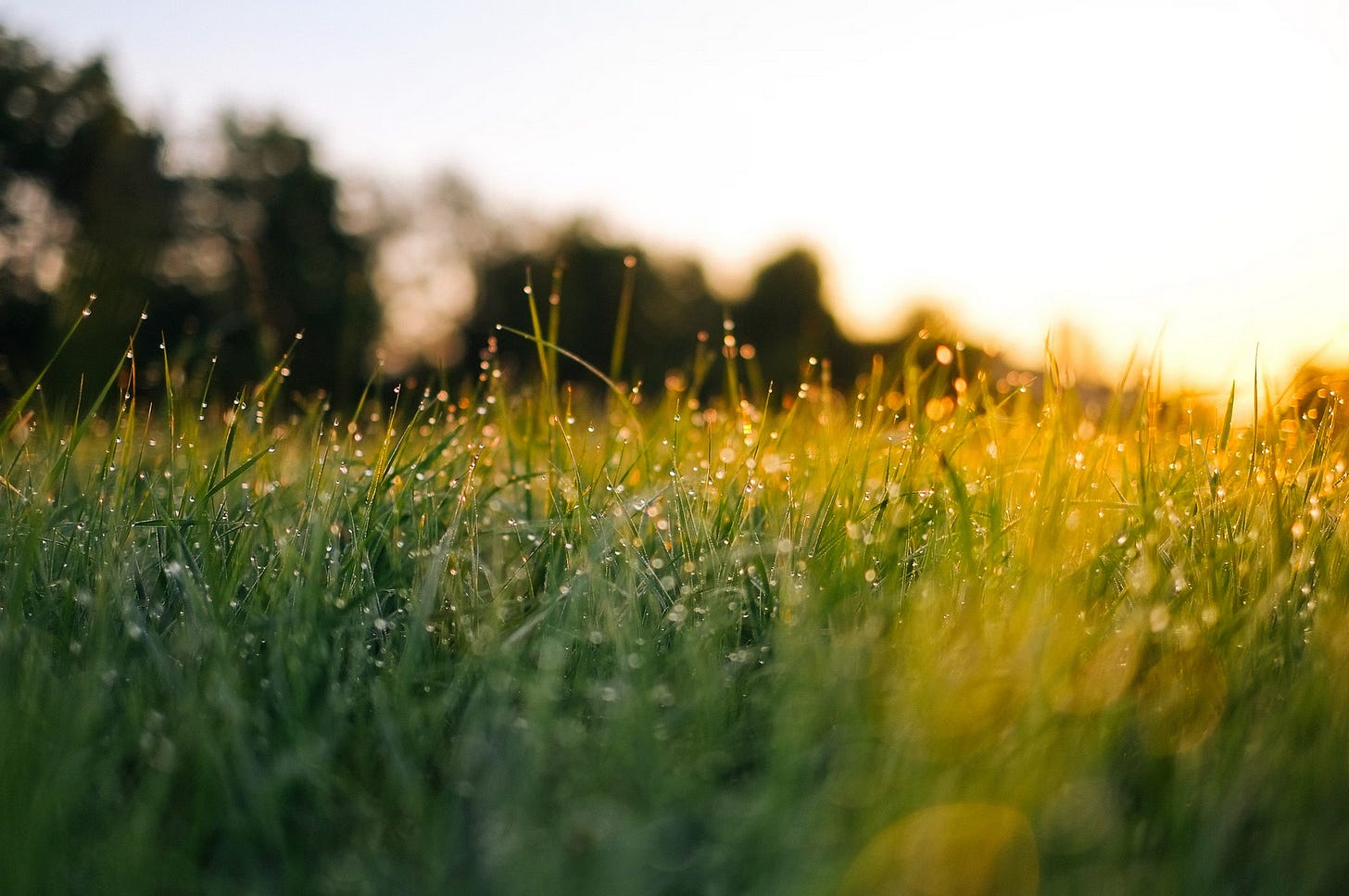In the spring of 2023, I had a stack of letters to write.
Anyone who’s received a letter from me knows that, when I’m left with nothing but a pen and a piece of paper, I tend to ramble about semi-philosophical things. Without anyone to interrupt me, words will spill across the page until I’m left with a hefty amount of paper to fit into a single envelope.
And so I spent an absurd amount of time writing about grass.
That’s a habit that I haven’t really lost, and with good reason. That same spring was the first time I read W.A. Fulkerson’s For Whom the Sun Sings, and that sparked a trail of thought about all things beautiful and superfluous—grass included—that’s stuck with me.
The premise of For Whom the Sun Sings is a society where everyone has, as far as they know, always been blind—until a boy named Andrius manages to keep his sight.
The mindset of the culutre is staggering. Because everyone is blind, there’s no understanding of what sight even is. They don’t have any words for colors; they can’t fathom what “looking like” something even. . . means.
When you’ve never had something—especially if you’ve never known it even existed—can you truly miss it?
I don’t think you can.
Reading the book plunged me into the same mindset. I had to wrestle through a view of what the world would even be like if we only had four senses. It was a world where colors, paintings, drawings, and designs had neither sense nor use.
And you know what? People could survive.
Sure, it would be harder. There are challenges the community in For Whom the Sun Sings faces that a society such as ours doesn’t have to.
But you could survive without sight.
God didn’t need to create things to be visible. He didn’t need to create us to be able to see them.
Think about it: He didn’t have to create colors, or waterfalls, or the hundreds of different kinds of wood that all have their own pattern and shade.
He didn’t need to create the sun, or the mountains, or the color blue, or dogs that wag their tails when they’re happy.
He didn’t need to create us to enjoy the taste of food or the rest of sleep. He didn’t need to create us to find delight in anything.
Yet he did.
“God, who needs nothing, loves into existence wholly superfluous creatures in order that He may love and perfect them.” — The Four Loves, C.S. Lewis
Superfluous is the perfect word (thank you, Lewis). Because none of creation—none of the pleasures around us—none of us—are necessary.
God would still be good and just and holy if sunsets weren’t so stunning.
God would still be loving and kind and merciful if petrichor didn’t smell like adventure.
God would still be God if grass didn’t exist.
But look. Look. Grass does exist. Along with butterflies and sea foam and family and cliffs and tea and birdsong and the majesty of a pacing lion.
Along with me. Along with you.
God finds pleasure in creating creatures and giving them things to delight in. In some unbelievable twist, we can even rend him specks of his own glory through our very delight.
It’s mind-boggling. It’s superfluous. It’s entirely unnecessary from beginning to end.
And it is, I think, what the word “grace” truly means.
Our world could be like that of For Whom the Sun Sings, but it’s not.
God didn’t have to create grass, but he did.
Our world and its myriad of delights are so superfluous, surprising, and utterly unnecessary—and so very, very wonderful.





This is so beautiful. I’ve been mulling on this concept since realizing that this would be my last harmattan in West Africa. My favorite thing about the dust is realizing how lovely the earth is when its fountains finally break and green floods the ground again.
God is so kind to care about delighting our souls and not just saving them. 🤎
I love this! it's so true. I used to think about that... but I forgot to think about it enough to remember it :) thank you for showing me this wonderful and glorious truth again!